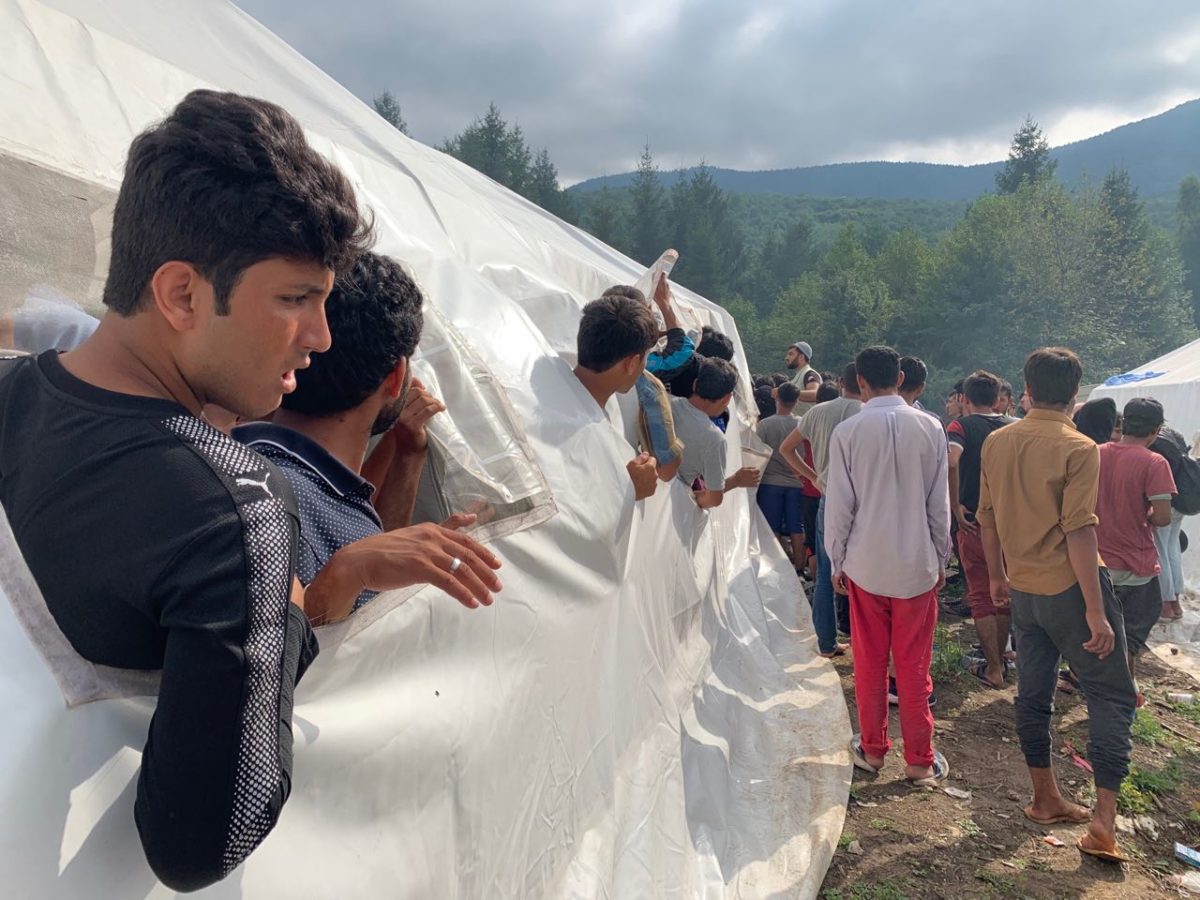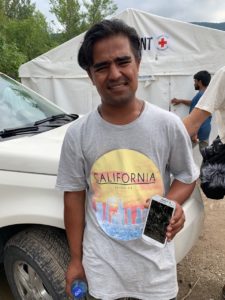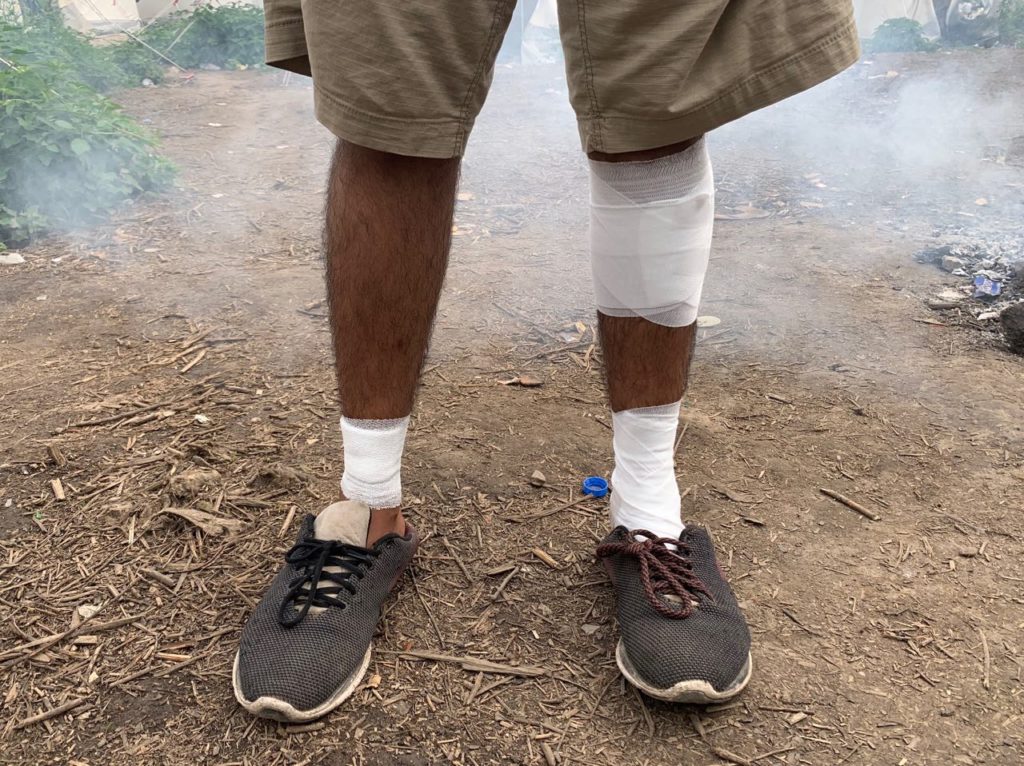Inhumane conditions at Croatia's external EU border

At the beginning of August I visited the Bosnian city Bihać on the EU's external border and saw conditions there that are absolutely inhumane. The place has become a bottleneck for people seeking protection because they can't get any further from here. In Bihać you can see homeless refugees everywhere on the street because there is not enough space in the shelters.
even worse is the situation in the informal camp Vučjak, which is located on a former garbage dump in the middle of nowhere. people are being driven up like cattle by the police, surrounded by mosquitoes and land mines. far too many men are crammed together in tents that are far too small, even the water has been turned off there in the meantime. the red cross is still distributing small lunch packages, but they are not enough. medical care is no longer available there after a team of volunteers led by the german photographer Dirk Planert was expelled from the country. the reason: they did not have a work permit. however, you cannot get a work permit either, because it is not an official camp. the conditions there are so bad that iom and unhCR do not want to become active, because they say that this would be tantamount to recognition of the camp. yet this camp should not exist at all.
Although minors enjoy special protection, children are also included in Vučjak. I spoke to an eleven-year-old who told me that he was forcibly returned to Bosnia-Herzegovina by the Croatian border police. What should I tell this eleven-year-old child about the EU community of values?

The Croatian police cannot simply send people seeking protection back to Bosnia-Herzegovina. Anyone who crosses the border into the EU has the right to apply for asylum. But this right is literally being trampled underfoot. A report by Amnesty International documents how the Croatian police mistreat people. In addition, their money is taken from them, their mobile phones are destroyed and some even have their shoes taken away. These are not excesses by individual police officers. This is systematic violence ordered from above. Individual police officers have already addressed Croatian media and said that they will be threatened with sanctions if they refuse to use this brutality against fugitives.
It would be the task of the EU Commission to clearly identify this daily breach of law and, in addition to border protection, to ensure that an independent control authority is set up at the border. But the Commission has so far turned a blind eye. When Ursula von der Leyen travelled to Croatia shortly after her election as Commission President, she did not mention the daily breach of law at the EU's external border. The Commission also spoke out in favour of admitting Croatia into the Schengen area. I too would like Croatia to become a member of the Schengen area soon. But I would also like us to ensure that basic human rights are respected at Croatia's EU external border before then. Croatia will take over the EU Council Presidency on 1 January and the hard winter is approaching for the people in Vučjak and Bihać.

I, along with other Members of Parliament, have expressed this criticism in a letter to the Commission, and we have asked it to work to improve the situation.
We must do everything in our power to find a quick solution and prevent people there from freezing to death on our external border. This situation deserves more attention. We must help Bosnia-Herzegovina to provide decent housing for people, but we must also demand that Bosnia-Herzegovina work on a sustainable solution. In addition, the illegal and violent deportations by the Croatian border police must stop.
Everyone deserves dignified treatment, regardless of their passport, and in Europe everyone has the right to an asylum procedure based on the rule of law.